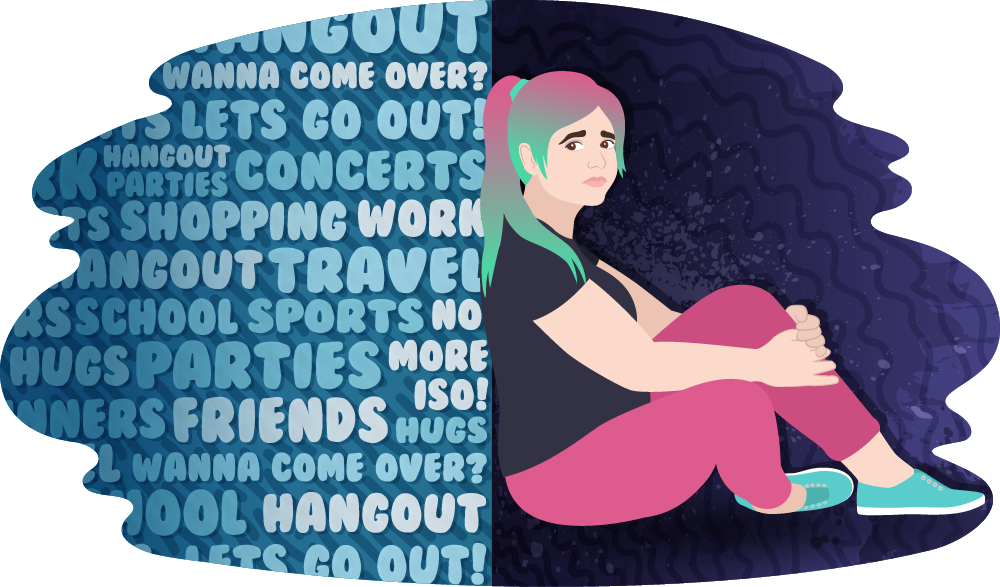How to manage anxiety
Anxiety can feel overwhelming, but there are some simple steps you can ...
READ METhe pressure to return to ‘normal’ after a collective trauma, like a pandemic or natural disaster, can be overwhelming. It’s totally normal to feel like you aren’t ready to grow through the changes.

Sometimes there can be pressure to return to ‘normal’ or pretend like everything hasn’t changed!
It might come from your friends, family or teachers. You might feel hope and excitement to go back to normal, but also fear and worry at the same time. Sometimes things can’t or won’t go back to how they used to be... and that’s tough.
It’s very natural to find it hard to adjust after a stressful time. Here are some common things people struggle with:
Our stress response is how our brain reacts to danger to keep us safe – and it can make you feel cautious about ‘going back to normal’ before you feel safe and ready.
Research suggests that different threats push different ‘psychological buttons’. New and unfamiliar threats (such as the pandemics and natural disasters) raise our anxiety levels higher than more familiar threats do.
This is due in part to our amygdala - the part of our brain which processes emotions. It plays a role in detecting new things and processing fear.
Your brain is trying to protect you! That’s why you might be feeling anxious and stressed about returning to ‘normal'. But don’t worry - your brain can also change and grow stronger.
Returning to ‘normal’ doesn’t mean going back to how things were, it means adapting to the ‘new normal’
You can choose what is and isn’t ok for you in the ‘new normal’.
People might have an expectation that you will feel and act as you did before.
They might pressure you to return to normal more quickly than you are ready, or to do things that make you feel uncomfortable, such as hanging out in a large group.
It’s important to know your boundaries.
Boundaries are the line between behaviours we are ok with, and things we aren’t ok with. There is no right or wrong because boundaries are personal.
Boundaries are like rules that you make to stay safe, happy, and in charge of how you feel. It's okay to decide what works best for you!
Here are some boundaries you might make for you or others to follow:
Sometimes things won't go back to normal as you knew it – but it may be that you need to find a new kind of normal.
This can be tricky and take some time. So, here are some things you can try when you want to start adapting to this change:
How to tell if you might need support:
If any of these things keep happening it might be a sign you need to reach out... to your parents, friends, teachers or us, Kids Helpline.
How to manage anxiety
Anxiety can feel overwhelming, but there are some simple steps you can ...
READ MECoping strategies
If you are feeling stressed, anxious or just struggling to deal, there ...
READ MEWhat if things don't go back to normal?
If a big change like a natural disaster or pandemic has got ...
READ MECoping strategies: As told by you!
We hand the mic over to you to share the coping strategies ...
READ METalking helps! We’re here for you.
No problem is too big or too small.
We're here 24 hours a day, 7 days a week